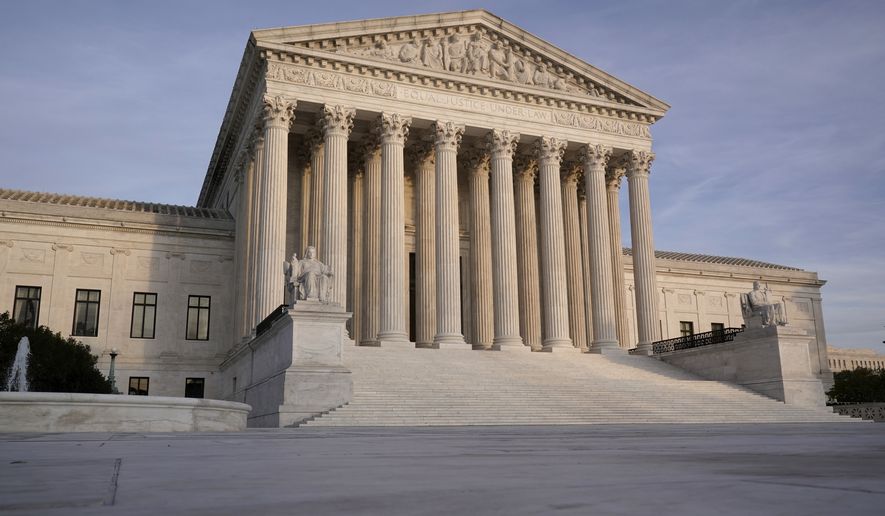The Supreme Court ruled Thursday that California ran afoul of the First Amendment by ordering charities to disclose the names and addresses of donors.
The 6-3 ruling is a win for advocates of privacy rights and freedom of association.
Chief Justice John G. Roberts Jr. delivered the opinion for the court. The other five conservative justices joined him.
“Our cases have said that disclosure requirements can chill association,” he wrote. “The disclosure requirement ‘creates an unnecessary risk of chilling’ in violation of the First Amendment.”
The three Democratic appointees disagreed with the ruling.
Justice Sonia Sotomayor, an Obama appointee, wrote in a dissent that the charities should be required to show that the California law infringed on their First Amendment rights before initiating a challenge, striking down the law altogether.
“Today’s analysis marks reporting and disclosure requirements with a bull’s-eye. Regulated entities who wish to avoid their obligations can do so by vaguely waving toward First Amendment ‘privacy concerns,’” she wrote.
Justice Elena Kagan, an Obama appointee, and Justice Stephen G. Breyer, a Clinton appointee, joined Justice Sotomayor’s dissent.
The case originated when a group of charitable organizations challenged a law passed by California’s Democratic-dominated Legislature requiring them to disclose their list of donors with the state. Though the form was to be kept by the state and not made public, the groups said it was a violation of the First Amendment and the state system was vulnerable to hacking.
The concern was that donor names would be released, potentially subjecting donors to harassment.
The state of California argued that the requirement helped protect against fraud and abuse of contributions to charities.
After a trial, the U.S. District Court ruled in favor of the groups. But the 9th U.S. Circuit Court of Appeals sided with California, prompting the organizations to bring the case to the high court.
In the high court’s opinion, Chief Justice Roberts noted the trial court’s findings that the disclosure mandates did not help the state with anti-fraud or investigatory efforts.
“The need for up-front collection is particularly dubious given that California — one of only three states to impose such a requirement … — did not rigorously enforce the disclosure obligation until 2010,” he wrote. “In reality, then, California’s interest is less in investigating fraud and more in ease of administration.
Americans for Prosperity Foundation, a libertarian conservative group founded by the wealthy industrialist Koch brothers, led the case against California and was supported by a number of groups on both the left and the right.
“Given how polarized our country has become, the work of addressing injustice and advocating for change is hard enough without people facing fear of harassment and retaliation from the government and from potentially violent opposition,” said Emily Seidel, CEO of Americans for Prosperity Foundation.
California Attorney General Rob Bonta said he was disappointed by the ruling but the state will work to ensure California nonprofits are abiding by the law.
“Stripping our office of confidential access to donor information – the same information about major donors that charities already provide to the federal government – will make it harder for the state to fight fraud and prevent the misuse of charitable contributions,” he said.
Conservative groups said it was a win for freedom and against cancel culture.
“The Supreme Court recognized that the disclosure of names and addresses of citizens simply for belonging to a cause is chilling to the freedom of association. Cancel culture is bad enough without the government forcing organizations to reveal the names of their donors so they can be attacked,” said Kelly Shackelford, president of First Liberty Institute.
The Campaign Legal Center, a nonprofit watchdog group, said the high court ignored the public interest in siding with wealthy donors.
“American voters have repeatedly supported transparency measures that fight fraudulent activities by an overwhelming margin, understanding them to be essential to governmental integrity,” the group said.
The lawsuit is Americans for Prosperity v. Rodriquez.
• Alex Swoyer can be reached at aswoyer@washingtontimes.com.




Please read our comment policy before commenting.